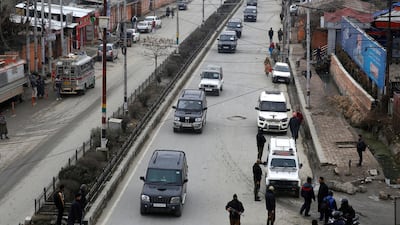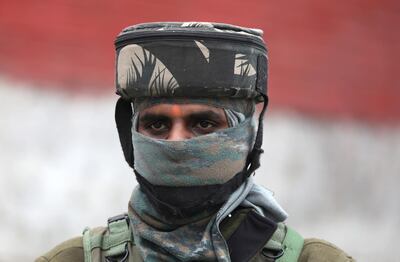Diplomats from 15 nations took part in an Indian government-organised tour of Kashmir on Thursday as a European Union envoy declined to attend as they will not be allowed to meet detained local politicians, reports said.
The two-day foreign diplomatic trip is the first since Narendra Modi’s government stripped the restive Himalayan region of its autonomy and sent in tens of thousands of extra troops in August.
The security lockdown and communications blackout, still only partially lifted, has drawn international criticism including in Brussels and Washington.
Diplomats representing the United States, Bangladesh, Vietnam, Norway, the Maldives, South Korea, Morocco, Niger, Nigeria, Argentina, the Philippines, Fiji, Uzbekistan, Peru and Togo made up the delegation.
Those who did attend were driven by Indian authorities in a motorcade amid tight security from the airport to the military headquarters in Srinagar, where they were briefed on the security situation, an army officer said. He spoke on condition of anonymity as he was not authorised to speak to reporters.
They also held discussions with some government officials at a luxury hotel and were expected to meet civil society members and some pro-India Kashmiri politicians later Thursday.
"EU envoys don't want a guided tour of Kashmir. We want to meet people freely of our own choosing," the NDTV news channel quoted one European diplomatic source as saying.
In particular they wanted to meet three former chief ministers, Farooq and Omar Abdullah and Mehbooba Mufti, who are still locked up, daily newspaper The Hindu reported. The three have been under house arrest or kept at a government residence since August.
Despite refusing the invitation for the January trip, a diplomatic source told AFP that the EU, which has been pressing for months to gain access to some of those detained, was still keen to go at a later date.
"The EU is interested in going and continues to be engaged with the MEA (Ministry of External Affairs) on timing and elements of the trip," the source said.
In October, around 30 European lawmakers - many from far-right parties - visited but without the official blessing of the EU and the Indian government insisted it was a "private" initiative.
Critics said that visit was a government's attempt to give the impression that life has returned to normal.
Foreign journalists have also not been allowed into the area since August, when Muslim-majority Jammu and Kashmir state were stripped of its partial autonomy and split into two regions ruled directly from New Delhi.
Prime Minister Narendra Modi said the move was to boost the local economy and end decades of violence that has left tens of thousands dead, mostly civilians.
There is still barely any internet access and only around half of mobile phones work.
New Delhi says this is to stop militants communicating, who it says are backed by Islamabad.
India and Pakistan, who Kashmir was spilt between at the end of British colonial rule in 1947, have fought two of their three wars over the territory.


